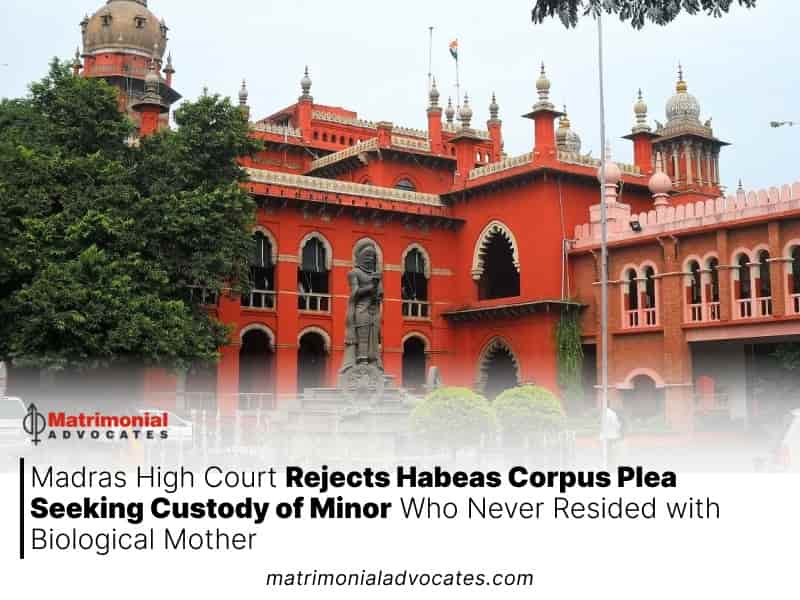
The Madras High Court addressed a Habeas Corpus petition brought by the biological mother of a young child seeking custody of her son. Diagnosed with HIV during pregnancy, the mother temporarily placed the three-year-old boy in the care of the fifth respondent. The court underscored that its decision, while recognizing the petitioner’s biological tie, did not involve establishing or proclaiming custody rights or appointing a guardian for the child.
A Division Bench of Justice M.S. Ramesh and Justice Sunder Mohan observed, “The minor boy has been under the care and custody of the fifth respondent herein right from the date of his birth and his physical custody has never been with the petitioner at all. The boy is now aged about 3 years and 9 months. At this age, when he had never lived with the petitioner, it would be in the welfare of the child that his care and custody should be retained by the fifth respondent herein for the present.”
Advocate Avinash Wadhwani represented the petitioner, while APP E. Raj Thilak represented the respondents in the legal proceedings. The petitioner, asserting her biological motherhood, sought the return of her child from what she termed as the “unlawful custody” of the respondents. However, the fifth respondent argued that the child had been legally placed in her guardianship through adoption, a decision made with the petitioner’s awareness and consent due to her HIV condition. Furthermore, the fifth respondent filed a petition invoking Sections 7 and 8 of the Guardian and Wards Act, 1890, seeking formal recognition as the minor’s guardian. While the petitioner maintained she had temporarily entrusted her child’s custody, the fifth respondent refuted this, claiming that the child had been adopted, establishing her as the rightful guardian entitled to custody. The Court, utilizing its authority under Article 226 of the Constitution, opted not to arbitrate the contentious factual matters. Notably, the Court observed that the child had always been under the fifth respondent’s care since birth, never having resided with the petitioner, despite their biological relationship. Thus, the Court determined that “it would be in the child’s best interest for his care and custody to remain with the fifth respondent.” Consequently, the Court granted the biological mother weekly visitation rights at the residence of the fifth respondent. Subsequently, the High Court directed the Principal District Judge to address the petition under the Guardian and Wards Act accordingly.





